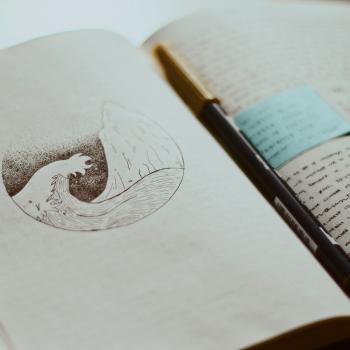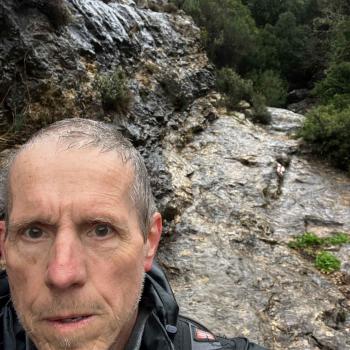A: Because the "invisibility" had to do with social identity, becoming Jewish could not change that unless I wore a kippah publicly, which I do not. The "invisibility" was a child's response, which is not to denigrate it in any way. I grew up, the Civil Rights movement happened and I was part of it, and becoming a fairly well-known published writer all combined in different ways to "mitigate the ontological terror of non-existence."
~~~~~~~~~~~~~~~~~~~~~~~~~~~~~~~~~~~~
Lester was involved in a controversial clash between the United Federation of Teachers and local school board leaders in New York City that led to a strike by UFT members. The strike was inflamed into a black-Jewish dispute when leaders of the UFT began employing racially charged language and leveling veiled accusations of anti-Semitism. As the host of a local radio show on WBAI, Lester had a teacher on his program and encouraged him to read several poems written by students. One of them was patently anti-Semitic and brought a massive backlash against Lester himself. The Jewish Defense League protested outside the radio station and demanded his ouster. He wrote about the incident extensively in the book, and I decided to ask him about the controversy.
Q: There is a passage where you write, "They needed to know that if they wanted blacks to care about Jewish suffering, they had to care about black suffering. As crude and obscene as the poem was, I heard in it an excruciating paroxysm of pain. It was the pain expressed as anger at Jews, many of whom found identity by borrowing suffering from the Holocaust while remaining blithely blind to the suffering of black people around them..." That's a stinging, though not altogether inaccurate, indictment of the Jewish community. I'm curious what your perspective is some four decades after the fact.
A: Being Jewish now I have more knowledge of the differences between various groups of Jews, which makes the answer to your question more complicated. Also, the only Jews I had contact with at the time of the radio show were those in the greater metropolitan New York area. I'm not sure one should generalize about Jews based solely on what takes place in New York. Also, in the late sixties, books and films about the Holocaust were just beginning to occupy more of a place in the consciousness of American Jews. Now the Holocaust is a more integral part of the Jewish psyche. Many American Jews have been responsive to appeals for aid to New Orleans after Hurricane Katrina, the sufferings of Somalis, and the like. What I said in 1969 would not be an entirely accurate description of American Jews today.
However, in one regard, my words then might still contain a truth. In 1991, I went to Israel for the first time. As I walked around Jerusalem, I saw Arabs being stopped by Israeli soldiers and being asked for identity cards and being searched. I saw Arabs driving out of Jerusalem each evening in old, dusty cars that reminded me of blacks in the South in the forties and fifties going home after a day of laboring for white people. I found myself identifying with both Israelis and Arabs. I had been stopped on the street by white policemen and had to justify my presence in a certain neighborhood. In the Arabs I certainly saw the blacks of the rural South of the 1940s and 1950s. And, on the other hand, I understood and empathized with the Israeli need for security. It would have been irresponsible if Israeli soldiers had not stopped Arabs and searched them. The only response that seemed appropriate to me was not to choose one side over the other but to hold within me, in equal measure, the pain of Israelis and Arabs.
When I returned and gave a talk about my trip and ended by saying essentially what I wrote above, I was verbally attacked by some Jews. It seemed to me then, and seems to me now, that holding the pain of my enemy close to my heart does not stop me from defending my life. Holding the pain of my enemy close to my heart helps me preserve my humanity. In the Torah we are told to not wrong or oppress the stranger, because we know what it is like to be a stranger. That admonition is repeated more than 20 times. To dehumanize the enemy is to dehumanize ourselves.
Until Arabs and Jews regard as sacred the pain of the other, there will be no peace.
Q: I wanted to ask what your opinion is on the state of black-Jewish relations today. The passage, "if they wanted blacks to care about Jewish suffering, they had to care about black suffering" seemed to just entirely embody the impasse between America's blacks and Jews.
A: I have no idea what the state of black-Jewish relations is today, or rather, I don't think they exist. In the many years I traveled around the country speaking about these relations, I found that younger generations of blacks had no idea what I was talking about. To them, Jews were white people, and young blacks did not understand why they were supposed to have some affinity with Jews. Black-Jewish relations are of significance to those of my generation; to younger blacks, they don't matter.




